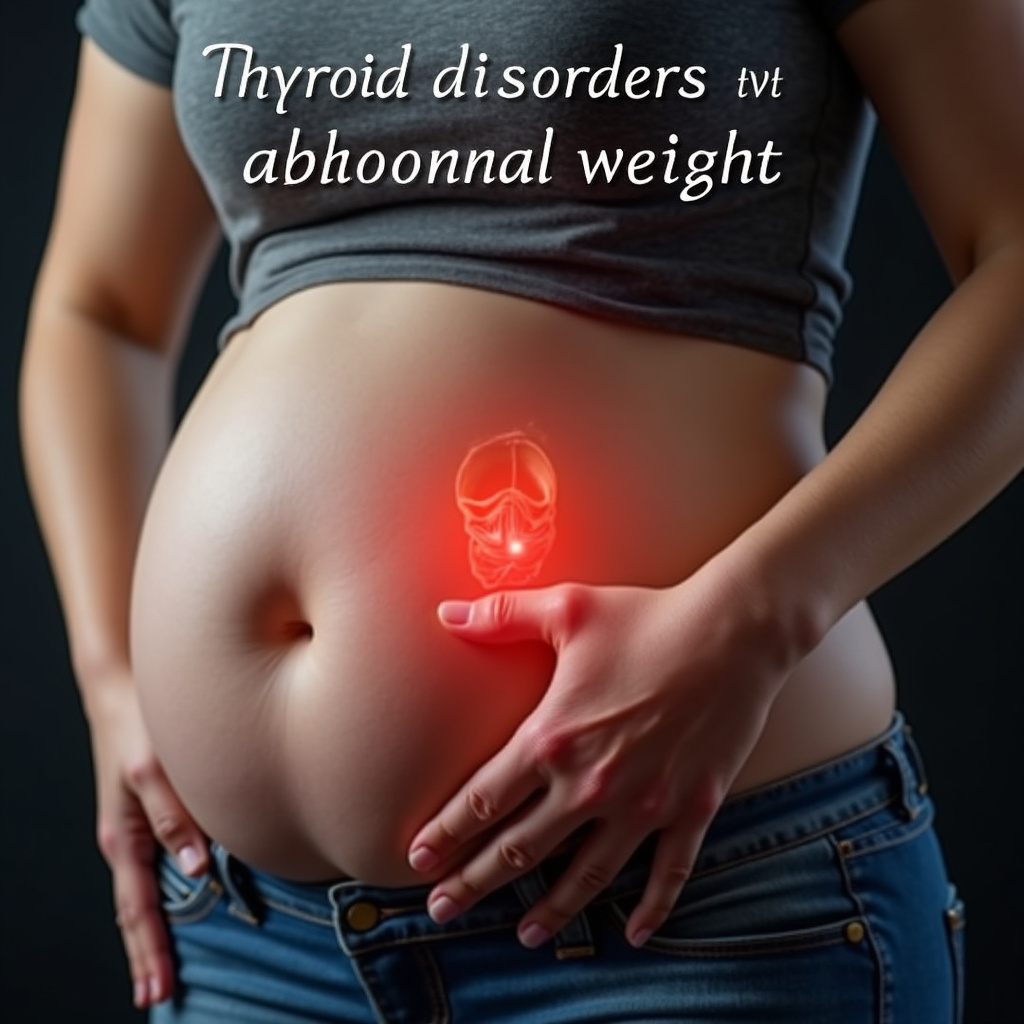
Thyroid Disorders and Abdominal Weight
Understanding Thyroid Disorders
The thyroid is a small, butterfly-shaped gland located in the front of your neck. It plays a vital role in regulating various bodily functions through the production of hormones. These hormones impact your metabolism, energy levels, and overall health. However, when the thyroid does not function properly, it can lead to various thyroid disorders, which can significantly affect your body weight, particularly abdominal weight.
Types of Thyroid Disorders
There are primarily two types of thyroid disorders that can influence weight: hypothyroidism and hyperthyroidism.
Hypothyroidism
Hypothyroidism occurs when the thyroid gland is underactive and does not produce enough hormones. This condition can lead to a slower metabolism, causing weight gain, particularly in the abdominal area. Symptoms of hypothyroidism include:
- Fatigue
- Weight gain
- Cold intolerance
- Dry skin and hair
- Depression
Hyperthyroidism
In contrast, hyperthyroidism is the result of an overactive thyroid producing too many hormones. This condition often leads to weight loss; however, some individuals may experience abdominal weight gain due to various factors, including muscle loss or changes in appetite. Symptoms of hyperthyroidism include:
- Increased heart rate
- Weight loss
- Heat intolerance
- Excessive sweating
- Nervousness or anxiety
The Link Between Thyroid Disorders and Abdominal Weight
Weight gain or loss due to thyroid disorders can often be disproportionate, leading to an increase in abdominal fat. Here’s how thyroid dysfunction can contribute to this issue:
- Metabolic Rate: Thyroid hormones are crucial in regulating metabolic rate. An underactive thyroid slows down metabolism, making it easier to gain weight, particularly around the abdomen.
- Fat Distribution: Thyroid disorders can alter the way your body stores fat. Individuals with hypothyroidism often find that they store more fat in their abdominal area.
- Hormonal Imbalance: Thyroid hormones interact with other hormones in the body, such as insulin. An imbalance can lead to increased fat storage and weight gain.
Managing Thyroid Disorders and Weight
If you suspect that your thyroid may be affecting your weight, it’s essential to consult a healthcare provider. Here are some tips for managing thyroid disorders and associated weight issues:
- Regular Check-ups: Routine blood tests can help monitor thyroid hormone levels and ensure they remain within a healthy range.
- Medication: For hypothyroidism, synthetic thyroid hormones can help restore normal hormone levels, which may aid in weight management.
- Balanced Diet: Focus on a healthy, balanced diet rich in whole foods, lean proteins, healthy fats, and plenty of fruits and vegetables.
- Exercise: Regular physical activity can help boost metabolism and promote healthy weight loss or maintenance.
Conclusion
Thyroid disorders can significantly impact body weight, particularly in the abdominal area. Understanding the connection between thyroid function and weight gain is crucial for effective management. By recognizing the symptoms and seeking appropriate care, individuals can take proactive steps to maintain a healthy weight and overall well-being. If you have concerns about your thyroid health, don’t hesitate to reach out to a healthcare professional for guidance.




